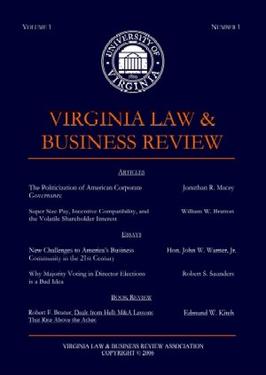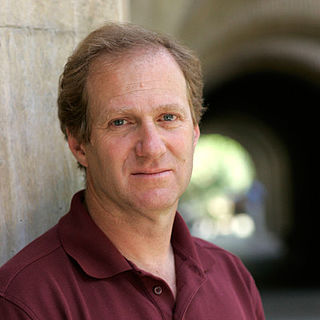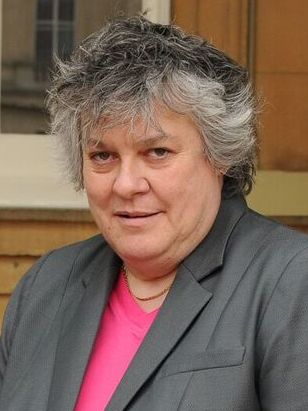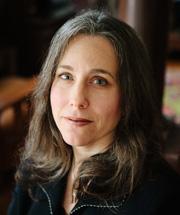
Harvard Law School (HLS) is the law school of Harvard University, a private research university in Cambridge, Massachusetts. Founded in 1817, Harvard Law School is the oldest continuously operating law school in the United States.
Corporate governance are mechanisms, processes and relations by which corporations are controlled and operated ("governed").

Law and economics, or economic analysis of law, is the application of microeconomic theory to the analysis of law. The field emerged in the United States during the early 1960s, primarily from the work of scholars from the Chicago school of economics such as Aaron Director, George Stigler, and Ronald Coase. The field uses economics concepts to explain the effects of laws, to assess which legal rules are economically efficient, and to predict which legal rules will be promulgated. There are two major branches of law and economics; one based on the application of the methods and theories of neoclassical economics to the positive and normative analysis of the law, and a second branch which focuses on an institutional analysis of law and legal institutions, with a broader focus on economic, political, and social outcomes, and overlapping with analyses of the institutions of politics and governance.
A proxy statement is a statement required of a firm when soliciting shareholder votes. This statement is filed in advance of the annual meeting. The firm needs to file a proxy statement, otherwise known as a Form DEF 14A, with the U.S. Securities and Exchange Commission. This statement is useful in assessing how management is paid and potential conflict of interest issues with auditors.
Michael Cole Jensen was an American economist who worked in the area of financial economics. Between 2000 and 2009 he worked for the Monitor Company Group, a strategy-consulting firm which became "Monitor Deloitte" in 2013. Until 2000, he held the position of Jesse Isidor Straus Professor of Business Administration at Harvard University.
Jonathan R. Macey is an American legal scholar who serves as the Sam Harris Professor of Corporate Law, Corporate Finance and Securities Law at Yale Law School. Macey is the 4th most cited legal scholar ever in the world in the field of corporate law.

Joseph Grundfest is an American academic. He is the William A. Franke Professor of Law and Business at Stanford Law School and co-director of the Rock Center on Corporate Governance at Stanford University. He joined Stanford's faculty in 1990 after having served for more than four years as a Commissioner of the United States Securities and Exchange Commission, a position to which he was appointed by President Ronald Reagan.

The Thomas R. Kline School of Law is the law school of Duquesne University, a private Catholic university located in Pittsburgh, Pennsylvania. It is approved by the American Bar Association and is a member of the Association of American Law Schools. Dean April M. Barton joined the school in 2019 as its 13th dean.
Professor Ian Ramsay is Harold Ford Professor of Commercial Law, Melbourne Law School and director of their Centre for Corporate Law and Securities Regulation in Melbourne, Australia. He is an academic lawyer, author, and prominent media commentator on corporate law and securities law issues in Australia.
Vikramaditya Khanna is a professor of law at the University of Michigan Law School, and the founding and current editor of the India Law Abstracts and the White Collar Crime Abstracts on the Social Science Research Network.

The Virginia Law & Business Review is a premier journal of business law scholarship that is published three times per year by students of the University of Virginia School of Law. The student-editors are members of the Virginia Law & Business Review Association, a not-for-profit corporation chartered in the Commonwealth of Virginia.
Joel M. Stern was chairman and chief executive officer of Stern Value Management, formerly Stern Stewart & Co, and the creator and developer of economic value added. He was a recognised authority on financial economics, corporate performance measurement, corporate valuation and incentive compensation and was a pioneer and leading advocate of the concept of shareholder value. He was also active in academia, and in the media.

Mark J. Roe is the David Berg Professor of Law at Harvard Law School, appointed in 2001.

Kent Greenfield is an American lawyer, Professor of Law and Law Fund Research Scholar at Boston College, and frequent commentator to The Huffington Post. He is the author of The Myth of Choice: Personal Responsibility in a World of Limits and The Failure of Corporate Law: Fundamental Flaws and Progressive Possibilities, published by University of Chicago Press in 2006, and scholarly articles. He is best known for his "stakeholder" critique of the conventional legal doctrine and theory of corporate law, and for his leadership in a legal battle between law schools and the Pentagon over free speech and gay rights.

Michael Klausner is the Nancy and Charles Munger Professor of Business and Professor of Law at Stanford Law School. He has been a member of the Stanford Law School faculty since 1997. He works in the areas of corporate law, corporate governance, and financial regulation.
Roberta Romano is Sterling Professor of Law at the Yale Law School. She is the first woman at Yale Law School to be named a Sterling Professor. Roberta Romano joined the Yale Law School faculty as a professor of law in 1985. She was named the Allen Duffy/Class of 1960 Professor of Law in 1991 and the Oscar M. Ruebhausen Professor of Law in 2005. She is Director of the Yale Law School Center for the Study of Corporate Law and Professor at the Yale School of Management.
Joseph Aloysius McCahery is an American academic researcher, corporate lawyer and institutional adviser. McCahery is most notable for his contribution in corporate finance and law, European business law, financial markets and banking regulations, the political economy of federalism and taxation.

Robert J. Jackson Jr. is an American lawyer and academic. He currently serves as a professor of law at New York University School of Law, where he is on public service leave. Jackson's research emphasizes the empirical study of executive compensation and corporate governance matters. On September 1, 2017, the White House announced that President Donald Trump had nominated Jackson to fill the open Democratic seat on the U.S. Securities and Exchange Commission (SEC). Jackson was unanimously approved by the Senate Banking Committee for the seat, and thereafter unanimously confirmed by the United States Senate on December 21, 2017.

Sally Wheeler, is Vice-Chancellor of Birkbeck, University of London and was previously Deputy Vice-Chancellor at the Australian National University, where she was also served as Deputy Vice-Chancellor and Dean of the College of Law (2018-2022). She is also a Visiting Full Professor at the UCD Sutherland School of law and adjunct professor at Waikato University, New Zealand, and Jilin University, China. Wheeler was elected to the Academy of Social Sciences and the Royal Irish Academy in 2011 and 2013, respectively. She was previously a Professor at Queen's University Belfast and was the Head of the School of Law at Queen's University Belfast for several years, she also served as Interim Dean of the Faculty of Arts Humanities and Social Sciences (AHSS), Dean of Internationalisation (AHSS) and, in 2017, Interim Pro-Vice Chancellor for Research Enterprise. Wheeler is the author or co-author of several books on corporate governance, over 70 articles or book chapters, and she has edited or co-edited nine other books. Wheeler has given major addresses and led workshops around the world, and has also been cited as "one of the world's leading experts" on the governance of pensions. In August 2023 her appointment as the incoming Vice-Chancellor of Birkbeck, University of London, was announced.

Jennifer Taub is an American law professor, advocate, and commentator focusing on corporate governance, financial market regulation, and white collar crime.











